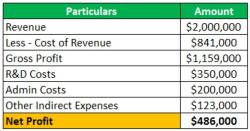What should you not do when investing in the stock market?
Investing in the stock market can be a rewarding way to grow wealth, but it also comes with risks. To increase your chances of success and avoid common mistakes, here are some things you should not do when investing in the stock market:
Investing Without a Plan:
- One of the most significant mistakes is investing without a clear strategy or plan. Define your investment goals, risk tolerance, and time horizon before you start investing.
Relying on Emotions:
- Emotional decision-making, such as panic selling during market downturns or buying on euphoria, can lead to poor investment choices. Avoid making decisions based on fear, greed, or overconfidence.
Timing the Market:
- Attempting to time the market by buying low and selling high is notoriously difficult. Many successful investors focus on a long-term buy-and-hold strategy instead of trying to predict short-term market movements.
Overtrading:
- Frequent buying and selling of stocks can lead to high transaction costs and capital gains taxes. It's important to strike a balance and not overtrade.
Ignoring Diversification:
- Failing to diversify your portfolio by putting all your money into a single stock or sector can expose you to unnecessary risk. Diversification helps spread risk across various investments.
Chasing Hot Tips and Trends:
- Following hot tips or investing in the latest trends without conducting thorough research can lead to losses. It's essential to do your own due diligence and not blindly follow others' advice.
Neglecting Research and Analysis:
- Not researching and analyzing the companies you invest in can be a costly mistake. Study the financials, management, competitive position, and industry dynamics of the companies you consider.
Lack of Patience:
- Successful investing often requires patience. Avoid the temptation to constantly monitor your portfolio and make impulsive changes. Investments may take time to yield results.
Not Setting Realistic Expectations:
- Unrealistic expectations for returns can lead to disappointment and impulsive decisions. Understand that the stock market involves both ups and downs, and past performance does not guarantee future results.
Ignoring Risk Management:
- Failing to assess and manage risk can be detrimental to your portfolio. Consider using stop-loss orders, setting limits on the percentage of your portfolio in a single stock, and having an emergency fund for unexpected expenses.
Leverage and Margin Trading:
- Using leverage (borrowed money) to invest or engaging in margin trading can amplify both gains and losses. It's a high-risk strategy that should be approached with caution.
Overlooking Costs:
- High fees and commissions can erode your investment returns. Be mindful of transaction costs, management fees, and tax implications when making investment decisions.
Not Staying Informed:
- Staying updated on market news and economic developments is essential. Being uninformed about factors that can affect your investments can lead to surprises and losses.
Not Adapting to Changing Circumstances:
- Your financial situation, goals, and risk tolerance may change over time. It's important to regularly reassess and adjust your investment strategy to align with your current circumstances.
Failure to Learn from Mistakes:
- Everyone makes mistakes in investing. The key is to learn from them and adjust your approach accordingly. Keep a record of your investments and the rationale behind your decisions to learn from both successes and failures.
By avoiding these common mistakes and following a disciplined, well-researched investment approach, you can increase your chances of achieving your financial goals in the stock market. Additionally, seeking guidance from a financial advisor or doing further research on investment strategies can be beneficial, especially if you are new to investing.
What are the common mistakes and pitfalls to avoid when investing in the stock market?
Some of the most common mistakes and pitfalls to avoid when investing in the stock market include:
- Investing without a plan. Before you invest any money, it is important to have a plan in place. This plan should include your investment goals, risk tolerance, and time horizon.
- Timing the market. It is impossible to predict when the stock market will go up or down. Trying to time the market is a recipe for disaster.
- Buying high and selling low. This is one of the most common mistakes that investors make. It is important to buy stocks when they are undervalued and sell them when they are overvalued.
- Overtrading. Trading too often can eat into your profits and increase your risk of losses.
- Investing in individual stocks. It is generally safer to invest in a diversified portfolio of stocks. This means investing in a variety of different industries and sectors.
The role of emotional decision-making and its impact on stock market investments.
Emotional decision-making can have a significant impact on stock market investments. When investors are feeling greedy, they may make risky investments in an attempt to make quick profits. When investors are feeling fearful, they may sell their stocks at a loss even if the fundamentals of the companies are still strong.
It is important to be aware of your own emotional biases and to avoid making investment decisions based on emotion. Instead, focus on making rational decisions based on your investment plan and research.
Strategies for managing risk and making informed investment decisions.
There are a number of strategies that you can use to manage risk and make informed investment decisions. These strategies include:
- Diversification. As mentioned above, it is important to diversify your portfolio across different industries and sectors. This will help to reduce your risk if one particular industry or sector underperforms.
- Asset allocation. Asset allocation is the process of dividing your investment portfolio among different asset classes, such as stocks, bonds, and cash. This can help to further reduce your risk and align your investments with your investment goals and risk tolerance.
- Rebalancing. Rebalancing is the process of adjusting your asset allocation over time to ensure that it remains aligned with your investment goals and risk tolerance.
- Dollar-cost averaging. Dollar-cost averaging is a strategy of investing a fixed amount of money at regular intervals, regardless of the price of the investment. This can help to reduce your risk of buying high and selling low.
Resources and tools for improving your stock market investing skills.
There are a number of resources and tools available to help you improve your stock market investing skills. These resources include:
- Books. There are many excellent books available on stock market investing. Some popular books include "The Intelligent Investor" by Benjamin Graham, "One Up on Wall Street" by Peter Lynch, and "A Random Walk Down Wall Street" by Burton G. Malkiel.
- Websites. There are also a number of websites that provide information and tools to help stock market investors. Some popular websites include Investopedia, Seeking Alpha, and The Motley Fool.
- Newsletters. There are a number of newsletters that provide stock market analysis and recommendations. Some popular newsletters include The Chartist and The Motley Fool Stock Advisor.
Stories and experiences of investors who learned from their mistakes.
Here are a few stories and experiences of investors who learned from their mistakes:
- "I lost a lot of money when I was young because I was trying to time the market. I learned that it is impossible to predict when the market will go up or down." - Sarah J.
- "I used to be an emotional investor. I would buy stocks when I was feeling greedy and sell them when I was feeling fearful. I learned that emotional decision-making is a recipe for disaster." - John D.
- "I used to invest in individual stocks. I lost a lot of money when a few of my stocks tanked. I learned that it is important to diversify my portfolio." - Mary S.
These are just a few examples of investors who learned from their mistakes. It is important to learn from the mistakes of others so that you can avoid making the same mistakes yourself.
It is also important to remember that investing is a long-term game. Don't expect to get rich quick. Focus on building a diversified portfolio and investing for the long term.













